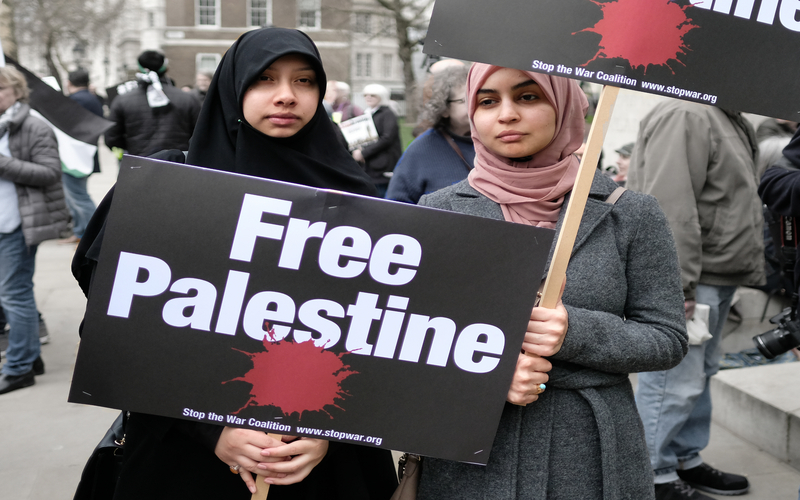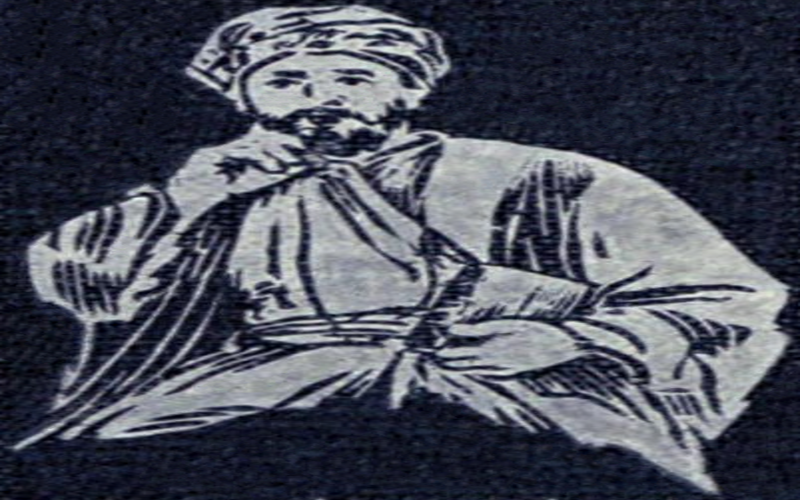The War on Islam: Why the West Fears Islam
Enver Masud is founder and CEO of The Wisdom Fund (est. 1995), and recipient of the 2002 Gold Award from the Human Rights Foundation (South Africa) for his book The War on Islam (FREE) from which the text below has been selected. He is also the author of 9/11 Unveiled (FREE), and a contributing author of Islam: Opposing Viewpoints and 9/11 and American Empire: Christians, Jews, and Muslims Speak Out.
When one examines the West’s fear of Islam and tries to relate it to the reasons usually given—Muslim fundamentalism, militancy, radicalism, terrorism, totalitarianism—it is difficult if not impossible to justify this fear on the basis of the reasons usually given. One has to believe, however, given all the facts and expertise available to the West, that the fear has to be rational. What is this fear that causes enemies of the Muslim world to play subtly on the theme of the Crusades in order to demonize Islam and Muslims? Let us first examine what it is not, before we draw our conclusion as to the real reason why the West fears Islam.
The fear of Islamic fundamentalism, militancy, radicalism, terrorism, totalitarianism, and the West’s discovery of the “rogue states” appeared quite conveniently with the fall of the Berlin Wall and the disintegration of the Soviet Union. Former Defense Secretary McNamara, in his 1989 testimony before the Senate Budget Committee, said U.S. defense spending could safely be cut in half. It became clear that the U.S. had to either undergo massive shifts in spending, a painful and unwelcome prospect for the defense establishment, or find new justification for continuing high levels of military expenditures. To provide this justification, the Pentagon manufactured the threat of “rogue states and nuclear outlaws.” The Gulf War was a contrived opportunity to sell this justification to the American people to protect oil company profits and to control the flow of oil to Europe and Japan which need it much more than does the U.S.
The International Institute for Strategic Studies calculates that the $262 billion U.S. defense budget accounts for about 37 percent of global military expenditures. Russia Japan and China will spend about $80 billion, $42 billion, and $7 billion respectively. The six “rogue states”—Cuba, Iran, Iraq, Libya, Syria, North Korea—have a combined annual military budget of $15 billion. The U.S. budget for covert operations (U.S. terrorism?) alone is double this amount. Given the paltry defense expenditures of all the “rogue states” combined, even after correcting for differences in costs, one has to believe that the “rogue states” are no match militarily for the West. And leaving aside the morality of U.S. covert operations, which invite retaliation, Muslim terrorists should not be a major fear. Far more acts of terrorism and violent crime in the U.S., according to government statistics, are committed by non-Muslims than Muslims. And if Muslims do pose a terrorist threat to the U.S. one hears little discussion of what it is that the terrorists want. Perhaps all they want is for the West to stop interfering in their countries in ways that we would never tolerate in the U.S.
Islamic totalitarianism, an oxymoron to anyone with even a rudimentary knowledge of Islam, should not be a Western concern. A Muslim ruler may be totalitarian but then her rule would not be Islamic. Furthermore, the Western record on supporting totalitarian Muslim regimes—Iran under the Shah, Iraq before the Gulf War—and doing business with nondemocratic regimes—China Kuwait Saudi Arabia—speaks for itself. As for fundamentalism, Islam has no parallel to the U.S. Protestant Christian movement, which opposed modern scientific theory and which coined the term in 1920 to designate those “doing battle royal for the fundamentals.” Rather Islam has from its birth stressed the use of reason and logic.
Islamic law is based upon the Quran, examples and sayings of Prophet Muhammad, analogical deduction, consensus among the learned, and individual reasoning. According to Muhammad Asad (The Message of the Quran) when the Prophet’s contemporaries heard the words Islam and Muslim they understood them as denoting man’s “self-surrender to God” and “one who surrenders himself to God,” without limiting himself to any specific community or denomination, eg. in the Quran, 3:67, where Abraham is spoken of as having “surrendered him-self unto God” (kana musliman) or in 3:52 where the disciples of Jesus say “Bear thou witness that we have surrendered ourselves unto God (bianna musliman).” In Arabic this original meaning has remained unimpaired.
Absent a generally accepted definition, the label Islamic fundamentalism serves only to obscure issues, rather than to illumine them. Meanwhile the Christian Coalition and the zionists and their biblical claim to Palestine appear fundamentalist to many, yet both are courted by U.S. politicians and not viewed as a threat.
One can go on eliminating Western arguments against Islam and Muslims. Eventually one has to ask, what then is the source of the West’s fear of Islam and Muslims?
The late Marshall G. S. Hodgson in Rethinking World History states: “[Islam’s] conscious hopes for a godly world order represent one of the most remarkable undertakings in world history, and because its less self-conscious general cultural heritage is laden with human values.” Muslims see the West beset with broken families, violent crime, and drugs. They see a society divided by race religion and huge disparities in income. They long for a peaceful life in which they may provide for the basic needs of their families and enjoy the respect due to all mankind regardless of their race, religion, position, or wealth.
These Muslims see their goals for a more just and compassionate society thwarted by a corrupt Muslim elite who pursue wealth and power regardless of the cost to their fellow human beings. They see these elites, who govern not by consensus as Islam prescribes, permitting outside powers to exploit their country while they derive few benefits, and find themselves subordinated by Western influences driving them down the troubled road taken by the West. They see few opportunities to earn a living because most opportunities are withheld for the elites and their sycophants. And they see these elites remaining silent when their faith, which offers solutions to the many social problems that plague the West, is denigrated in the propaganda which serves to maintain these elites.
The Muslim elites’ allies are the defense establishment and the neoimperialists. Islam’s mandate for justice and compassion opposes the primary objective of these neoimperialists who follow policies out-lined in 1948 for the U.S. Department of State by “the leading dove and peace prize winner” Mr. George Kennan. Kennan’s top secret Policy Planning Study 23, writes MIT Prof. Noam Chomsky, states in part:
We have about 50% of the world’s wealth but only 6.3% of its population. . . . Our real task in the coming period is to devise a pattern of relationships which will permit us to maintain this position of disparity. . . . To do so we will have to dispense with all sentimentality. . . . We should cease to talk about vague and . . .unreal objectives such as human rights, the raising of living standards, and democratization.
To avoid exposure, these neo-imperialists and their allies in the U.S. defense establishment spurred by the enemy within, divert attention by demonizing Islam and Muslims, thereby fanning the fires of bigotry and raising unrealistic fears among the people of the West.
Danger of Islam Self-Evident
From the Khomeini-led revolution in Iran to Saddam Hussein’s invasion of Kuwait to the bombing of the World Trade Center, the American people have been subjected to relentless anti-Muslim indoctrination. It is imbibed with their mother’s milk, stereotyped in their movies, spelled out in fifteen-second soundbites on television. Their daily paper offers them headlines that tell them all they need to know. Politicians and presidents sanctimoniously thrive on it.
The fiercely-held conviction inevitably produced by this insidious assault upon the intellect is that a great damnation has been unleashed upon the world, possibly by the devil himself, but in the form of people not motivated by the same needs, fears, emotions and personal morality that govern others of the species, but people engaged in an extremely clever monolithic international conspiracy dedicated to taking over the world and enslaving it for reasons not always clear, perhaps, but evil needs no motivation save evil itself.
Moreover any appearance or claim by these people to be rational human beings seeking a better kind of world or society is a sham, a cover-up to delude others, and proof only of their cleverness. The recent bombings which have taken place in Israel are forever proof of the bankruptcy of virtue and the evil intentions of these people in whichever country they may be found, under whatever name they may call themselves. Most importantly, the only choice open to anyone in the United States is between the American way of life and Islam’s way of life—that nothing lies between or beyond these two ways of viewing the world. This is how it looks to the simple folk of America. One finds that media pundits and establishment experts, when probed slightly beneath the surface of their academic language, see it exactly the same way. To the mind carefully brought to adulthood in the United States, the danger of Islam is self-evident; as self-evident as the flatness of the world once was to an earlier mind.
[Islam having replaced communism as the “Evil Empire,” we adapted this from a commentary on communism by William Blum, Killing Hope: US Military and CIA Interventions Since World War II, with his permission.]
Enver Masud is founder and CEO of The Wisdom Fund (est. 1995), and recipient of the 2002 Gold Award from the Human Rights Foundation (South Africa) for his book The War on Islam (FREE). He is also the author of 9/11 Unveiled (FREE), and a contributing author of Islam: Opposing Viewpoints and 9/11 and American Empire: Christians, Jews, and Muslims Speak Out.
His commentary on major events affecting the Muslim world has been published in newspapers and magazines including Christian Science Monitor, Veterans Today, Eastern Times, Islamic Horizons, The Minaret, Weekly Mirror, Tehran Times, Middle East Times, Jordan Times, Nation and the World (India), Impact International (UK), New Dawn (Australia), Sunday Times (S. Africa). He has given talks in the U.S., Canada, India, Malawi, and South Africa.
545,000+ copies of The War on Islam and 9/11 Unveiled have been sold and/or downloaded. Click section headings in 9/11 Unveiled to view evidence.
Mr. Masud worked as an engineering management consultant for the World Bank, EBRD and USAID in Albania, Egypt, Ethiopia, Ghana, Indonesia, Latvia, Pakistan, Russia, Tanzania. He was at the forefront of innovation in the electric power industry, and managed the U.S. Department of Energy’s National Power Grid Study. For his efforts to expose waste in the electricity sector he was the subject of TV, radio, newspaper reports — including an article by “one of the fathers of modern investigative journalism” Jack Anderson.
He has BS and MS degrees from the University of Oklahoma, a BS from St. Stephens College in Delhi, India, and has been on the Advisory Panel of the international journal Electric Power Systems Research.
For visitors accustomed to the Asian style of introduction, Enver’s father M. N. Masud — a descendant of Shah Waliullah (perhaps the greatest thinker-revolutionary of the Indian sub-continent), worked with Maulana Azad, and Pandit Nehru, was ambassador to Saudi Arabia, a UNESCO Mission Chief, and an Olympic gold medallist. His mother Atiya Fatima was a volunteer social worker, educator, worked briefly with Mother Teresa, and is descendedfrom Sir Syed Ahmad Khan, founder of India’s first Muslim university. Sir Syed is reported to be descended from Prophet Muhammad.






